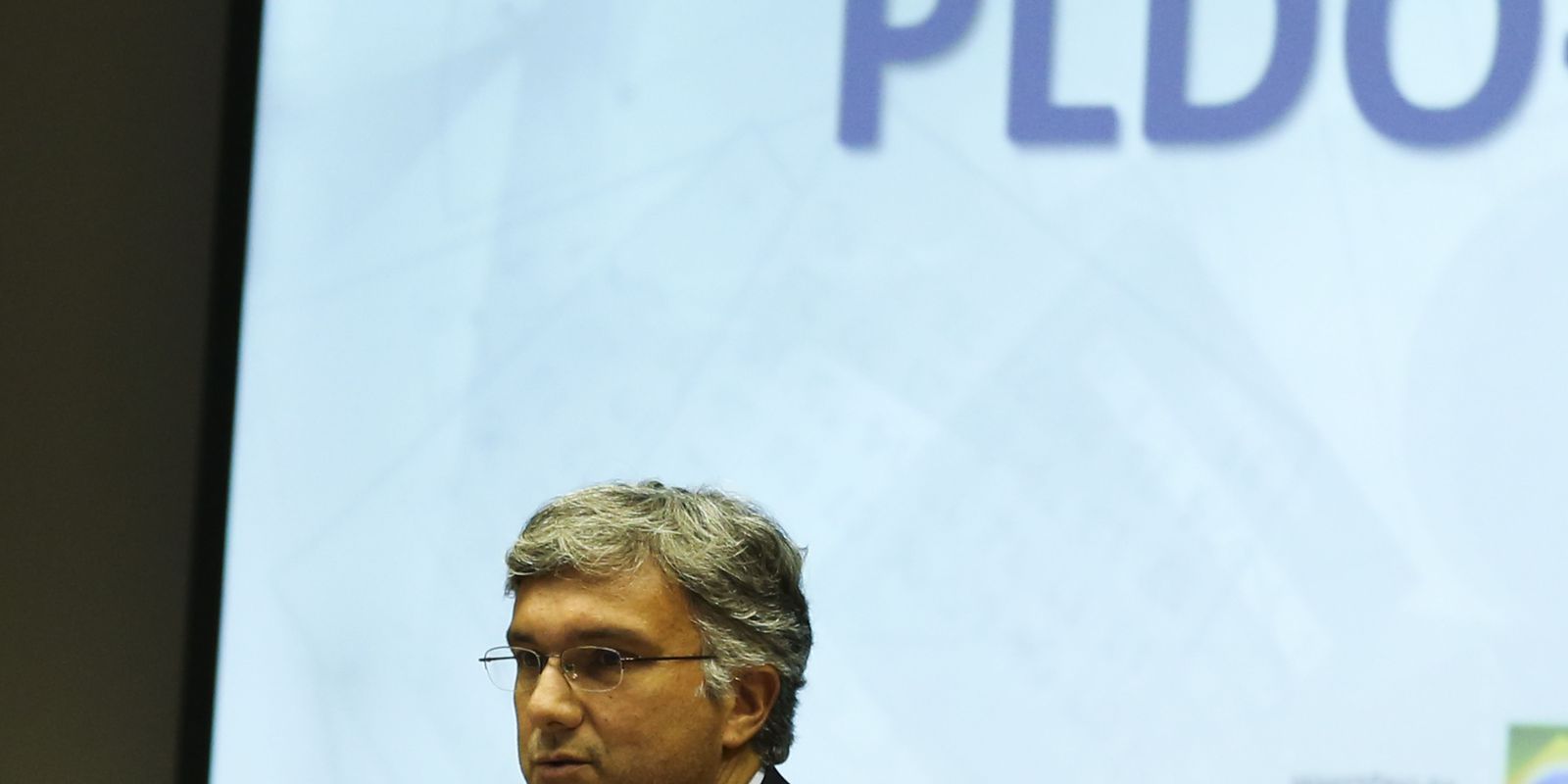The government has set aside a total of BRL 11.7 billion to allow for a readjustment in the salary of civil servants in 2023, as described in the draft Budget Guidelines Law (LDO) submitted last week to the National Congress. The readjustment percentage, however, has not yet been defined, according to the special secretary of the Treasury and Budget of the Ministry of Economy, Esteves Colnago.
“Everyone wants more and wants more. [Um reajuste de] 5% is already a considerable fiscal effort, but it has not been decided”, said the secretary today (18) at a press conference to detail the LDO project.
According to him, the recent deficit scenario would make greater adjustments difficult. “The spending ceiling exists to effectively look at the government’s accounts. We have 11 months of deficit. We are not in surplus and we are not in a situation where the country is calm. The country still needs fiscal consolidation. We need to pursue this,” he added.
For Colnago, it is not yet possible to say whether or not this adjustment will be applied linearly to all servers. “The idea is to create a reserve and the decision will be made by the president. But, prudently, we have included in the estimate a reserve of R$ 11.7 billion so that the next president has more peace of mind for the decision”, he added, emphasizing that the proposal could be changed during the processing in the National Congress.
Colnago added that it is up to the President of the Republic to make decisions on the holding of new public tenders.
forecasts
During the presentation, the secretary highlighted that, among the forecasts estimated by the federal government for the coming years, there is a tendency for the share of total primary revenue to fall in relation to GDP. “It goes from 22% of GDP, drops to 21.3% in 2023; and continues to decline through 2025, with 21.1% in 2024 and 21% in 2025,” he said.
“The same thing when we discount the transfers that are made to states and municipalities. The Revenue that stays with the Union goes from 17.5% of GDP and drops to 17% in 2025”, he added. “I also draw attention to the reduction of mandatory expenses. We start at 18.2% [em 2022]drops to 17.8% [em 2023]; to 17.3% and to 16.7% [nos anos seguintes]”.
“In terms of expenses, we seek to be prudent in the evaluation of expenses and include within the mandatory expenses, for the coming years, an estimate of expenses that we have on a recurring basis, for various reasons, which are extraordinary expenses. We prudently put R$8 billion more in mandatory expenses. If it is lower than that, we will have an increase in discretionary expenses; and if it is higher, we will have the opposite”, he added.
The secretary explained that the discretionary expenses projected for 2023 do not consider individual amendments and bench amendments, “which are those constitutionally mandatory.” “I would then need to add at least R$20 billion to have something more comparable,” he added.
According to him, the fiscal targets still provide for two years of deficit: R$ 65.9 billion and R$ 27.9 billion in the coming years. “But in 2025, we estimate a surplus result of BRL 33.7 billion,” he said.
LDO
According to the federal government, the public accounts of the Central Government (National Treasury, Social Security and Central Bank) should close 2022 with a primary deficit of R$ 170.47 billion.
The primary deficit represents the result of government accounts disregarding the payment of interest on the public debt. With the deficit forecast for next year, this will be the ninth year in a row of negative public accounts.
The LDO project predicts a deficit until, at least, 2024, totaling 11 consecutive years of negative results. The text projects a deficit of BRL 144.97 billion in 2023 and BRL 102.2 billion in 2024.
Despite yet another negative result for next year, the deficit is lower than the target of R$ 247.1 billion stipulated for this year. The fiscal target for 2021 can be relaxed according to the need for spending to face the covid-19 pandemic.
Spending ceiling
The rise in inflation starting in the second half of last year eased restrictions imposed by the federal spending ceiling in 2022, after a severe limit imposed for 2021. The PLDO will allow an increase of BRL 107 billion in the spending ceiling for the next year, from BRL 1.485 trillion in 2021 to BRL 1.592 trillion in 2022.
The increase of 7.2% is equivalent to the estimate of inflation by the Broad Consumer Price Index (IPCA) accumulated between July 2021 and June 2022. The value is a little more optimistic than the financial market projections, which estimate that the inflation accumulated in 12 months will reach between 7.5% and 8% in June.
This year, federal public spending may grow by only 2.13%, equivalent to the IPCA accumulated between July 2019 and June 2020. With the restrictions on economic activities in the first months of the covid-19 pandemic, official inflation fell in the first last year, pushing down the index used to correct the spending ceiling. In the second half of the year, the IPCA soared with the rise in food, but this rise will only be reflected in the spending limit for 2022.
The PLDO contains parameters that guide the preparation of the Budget for the following year. In theory, the project needs to be approved by the National Congress by the end of the legislative semester, in mid-July. Otherwise, the Congressional agenda will be locked.
*Collaborated with Wellton Maximo









